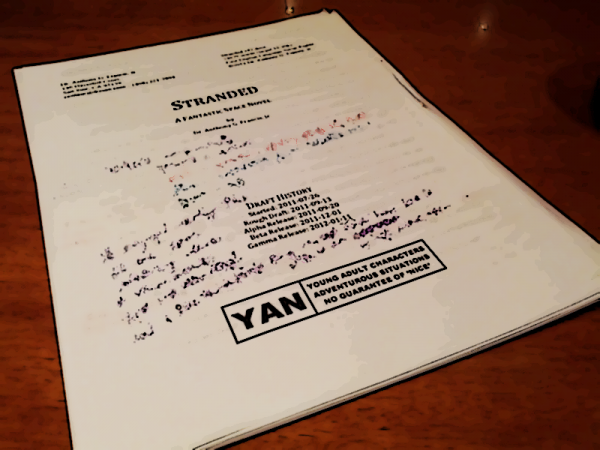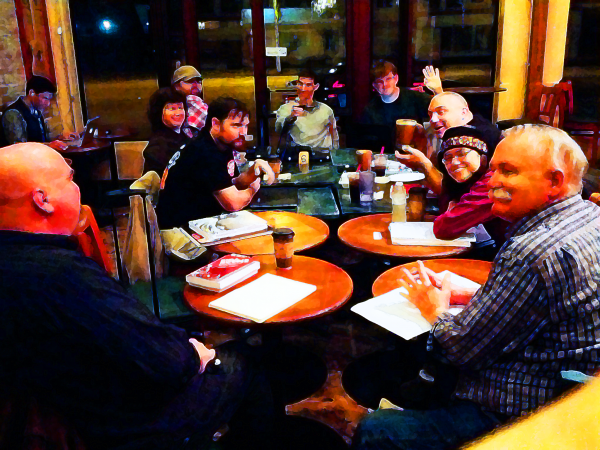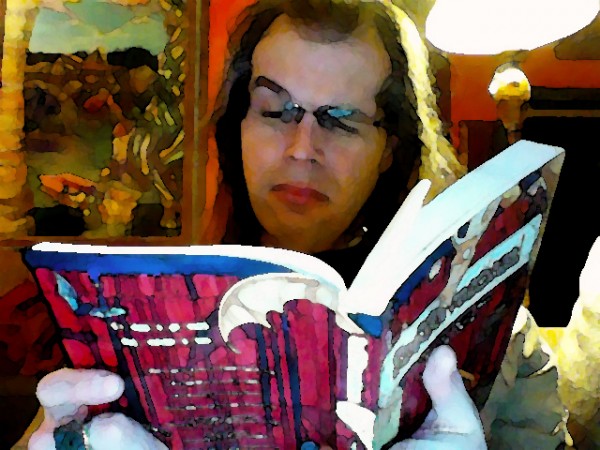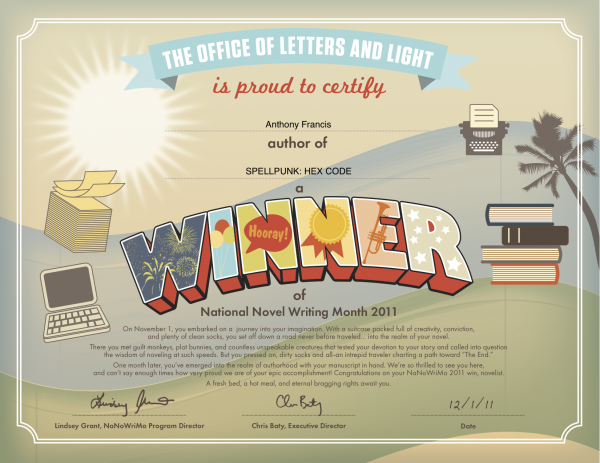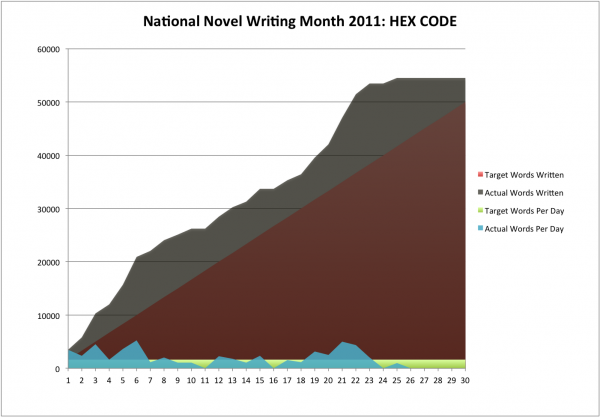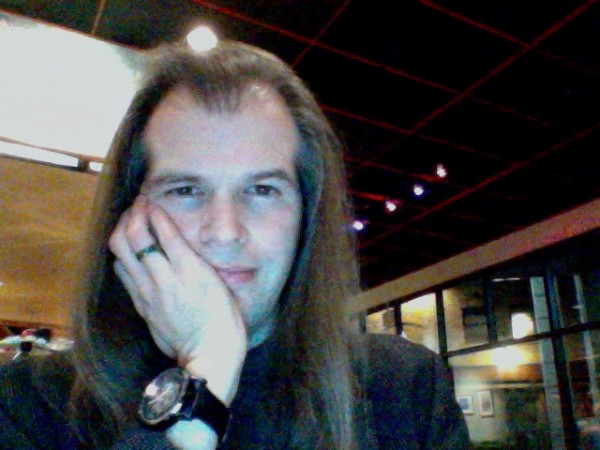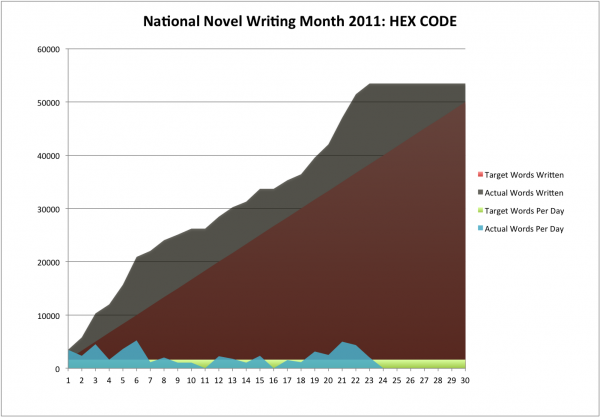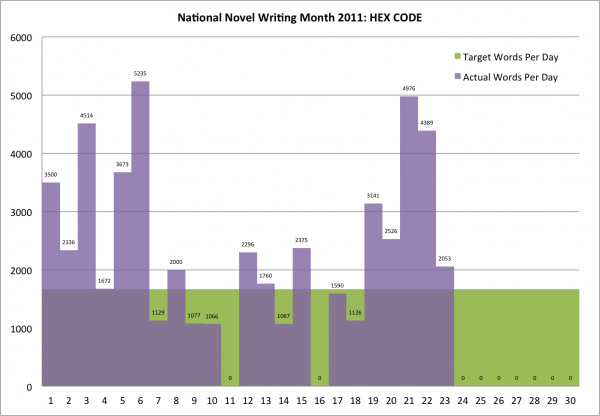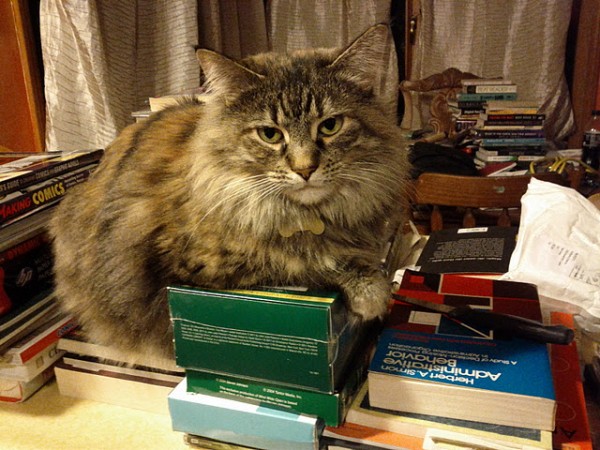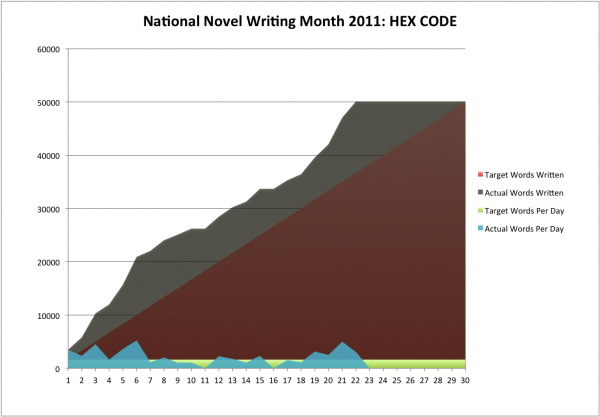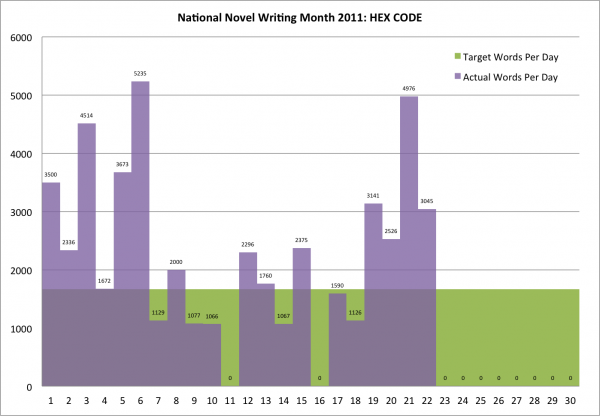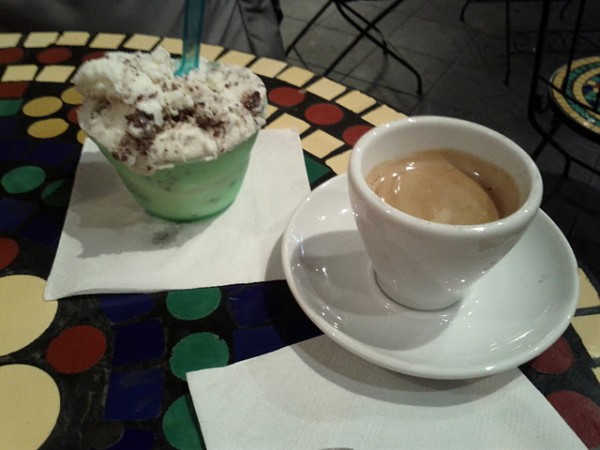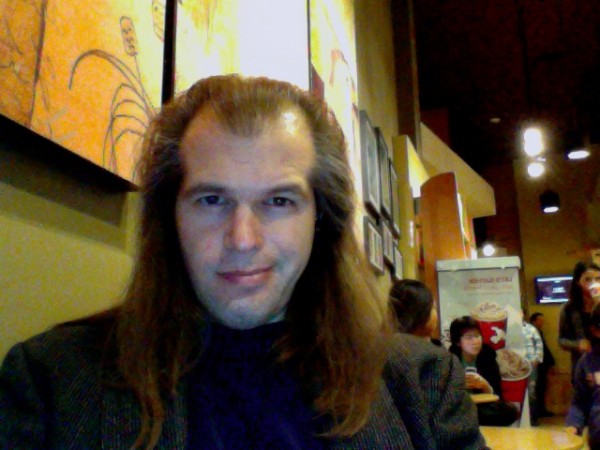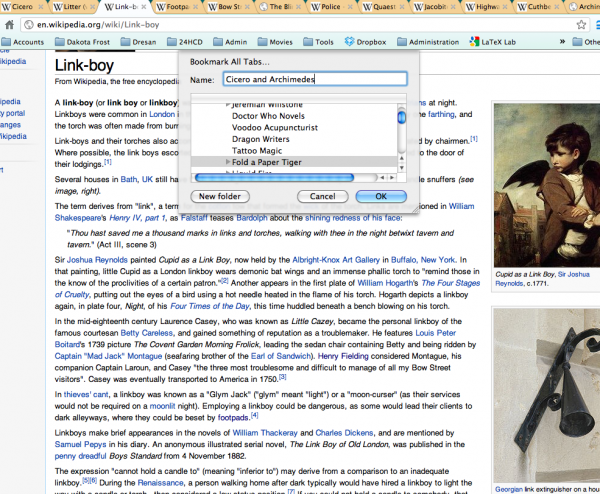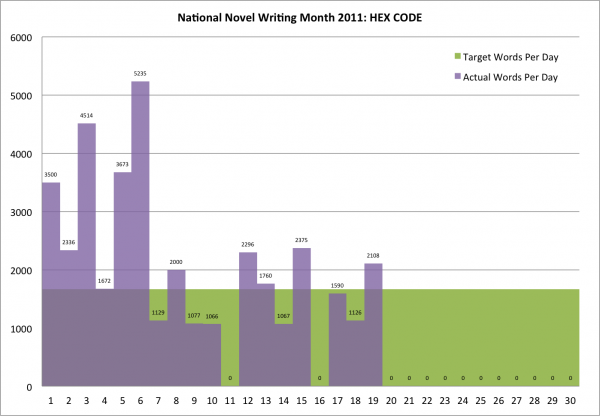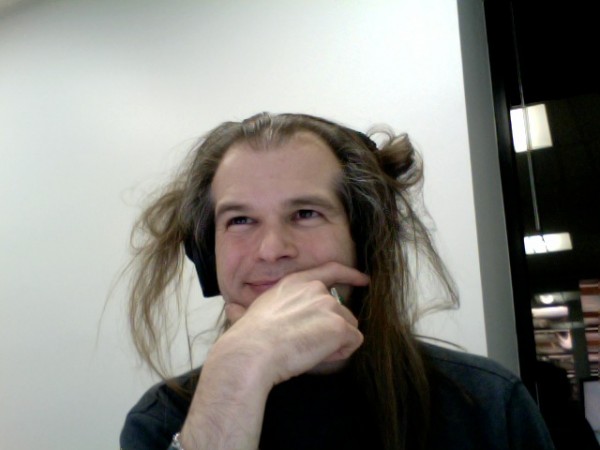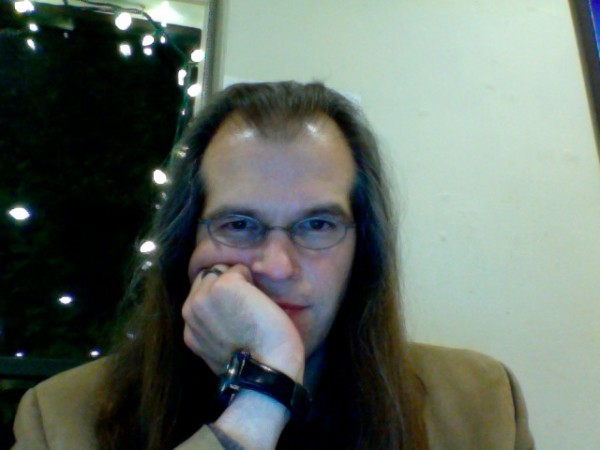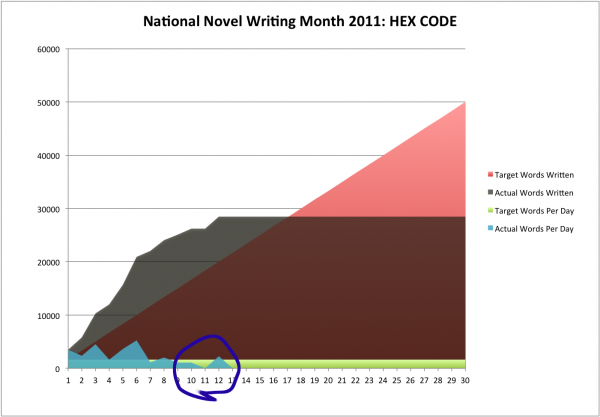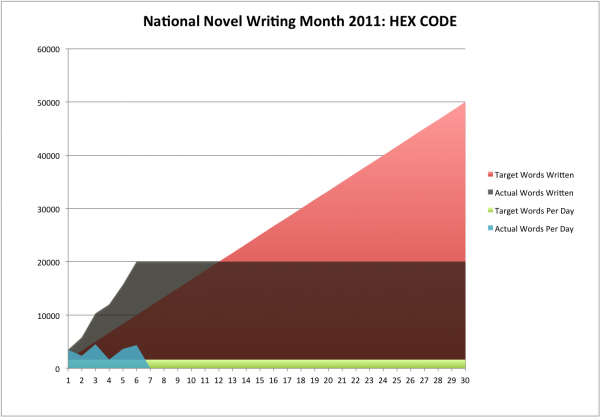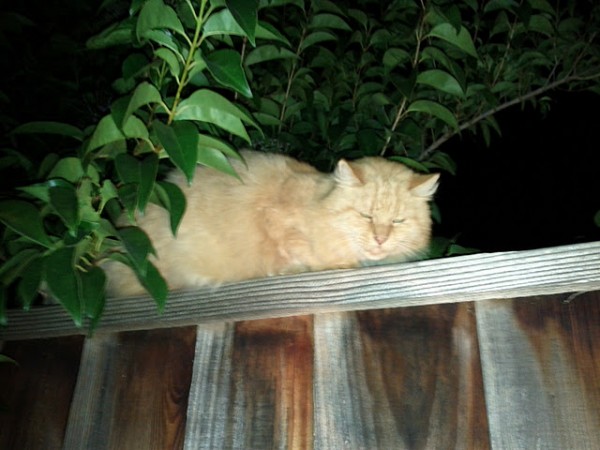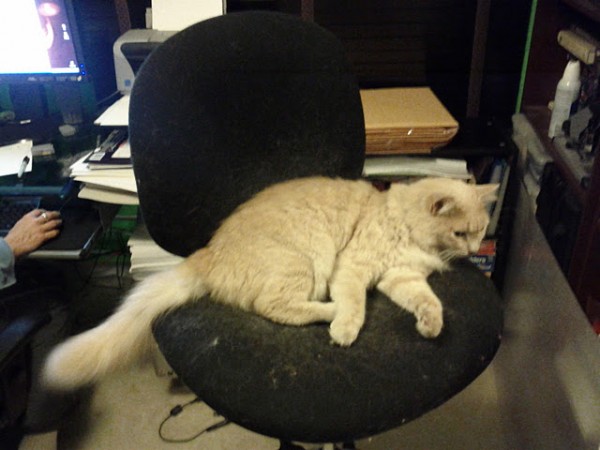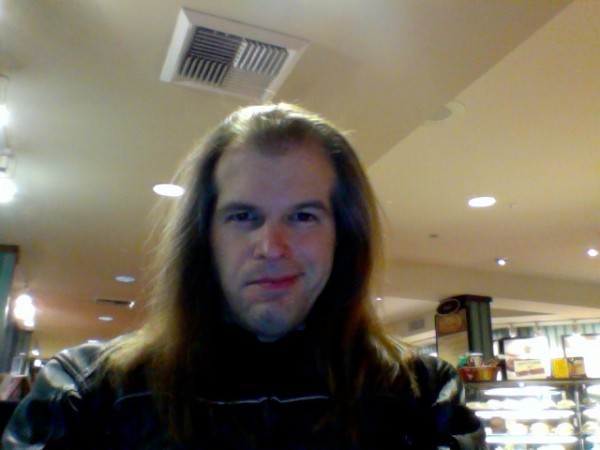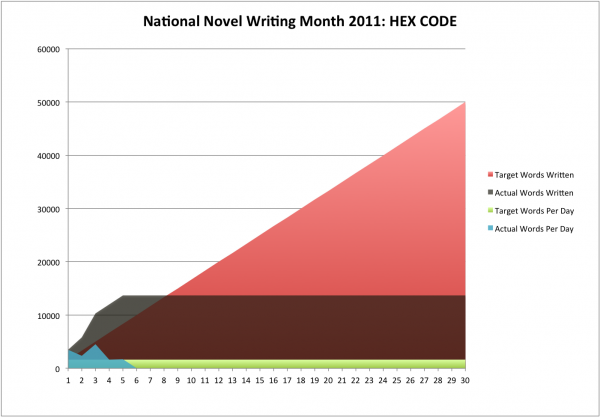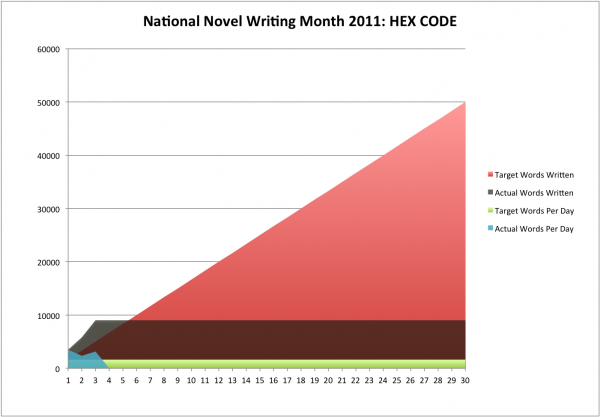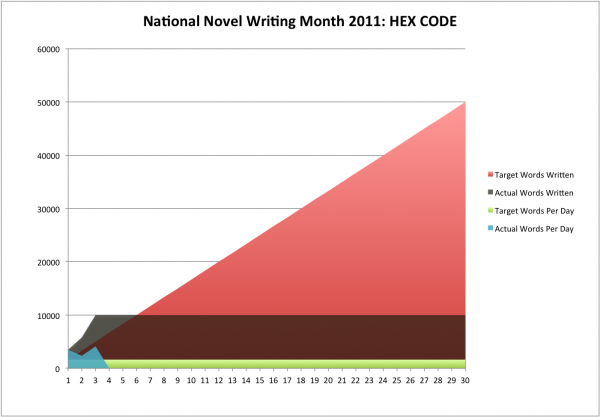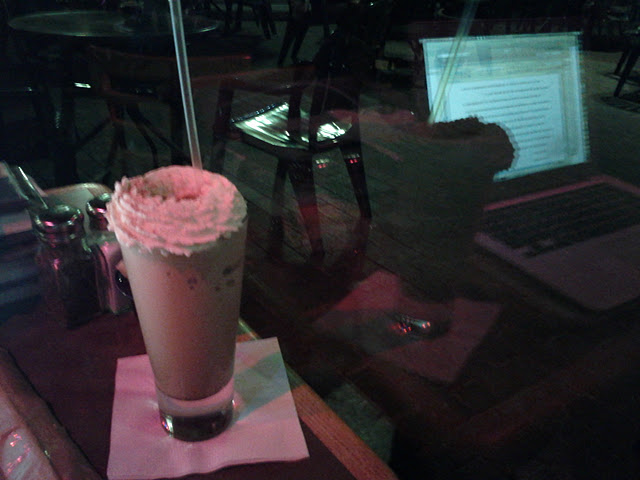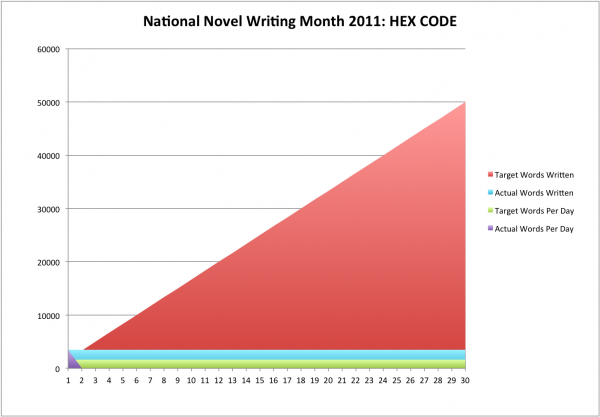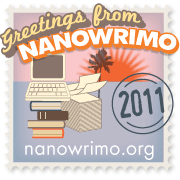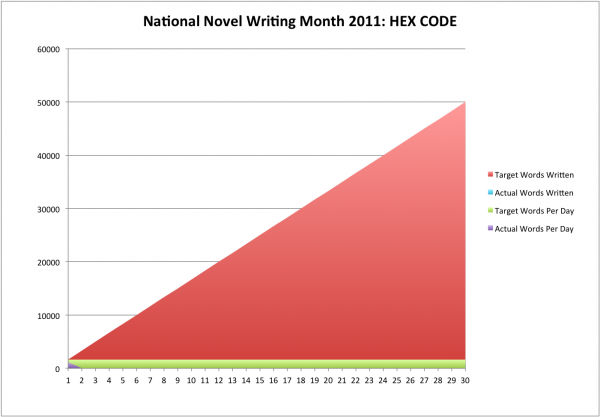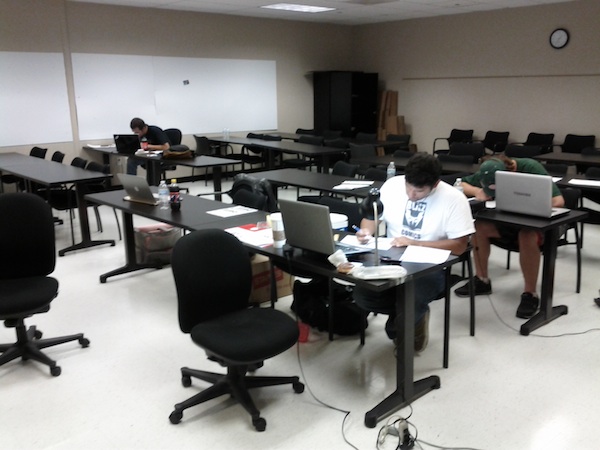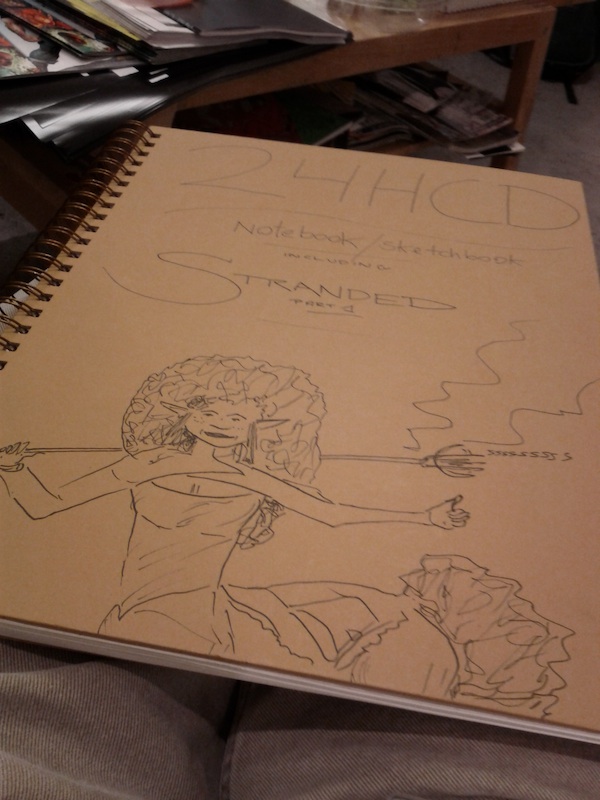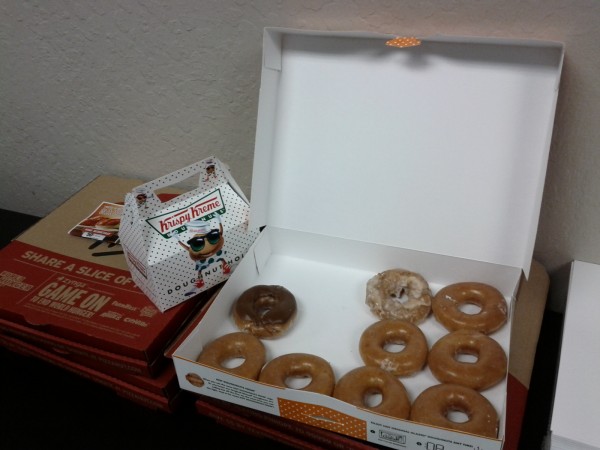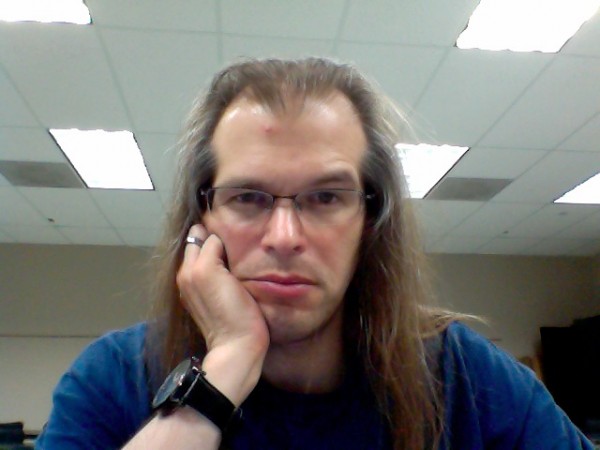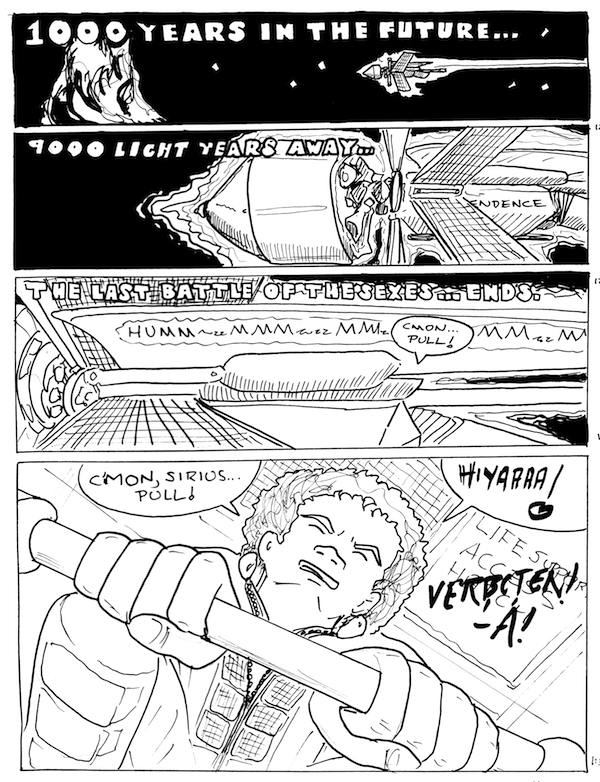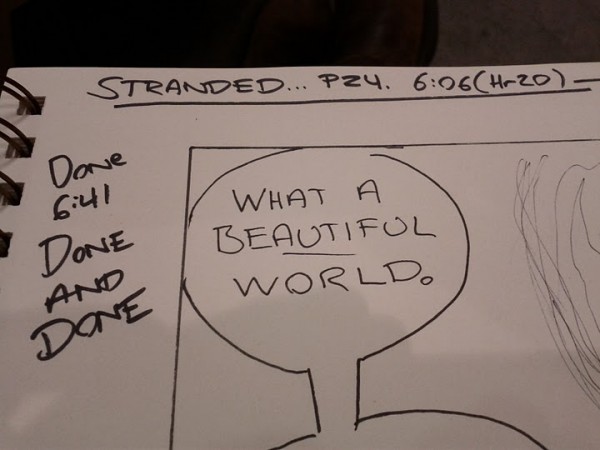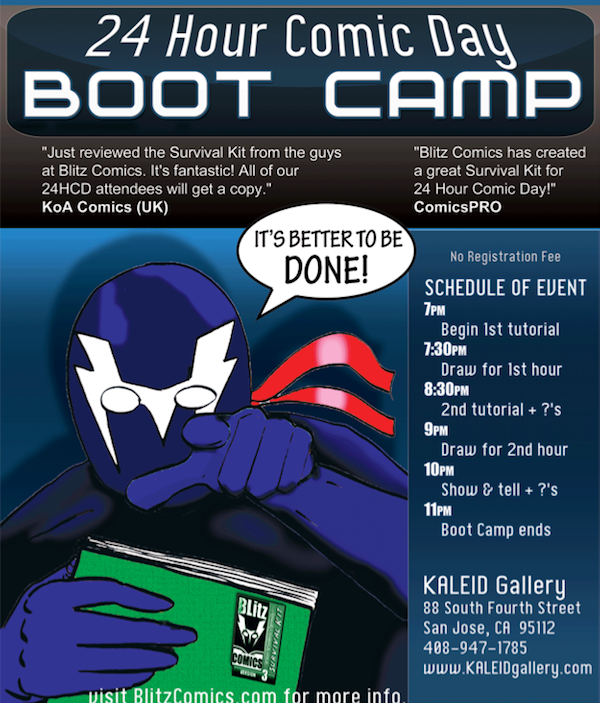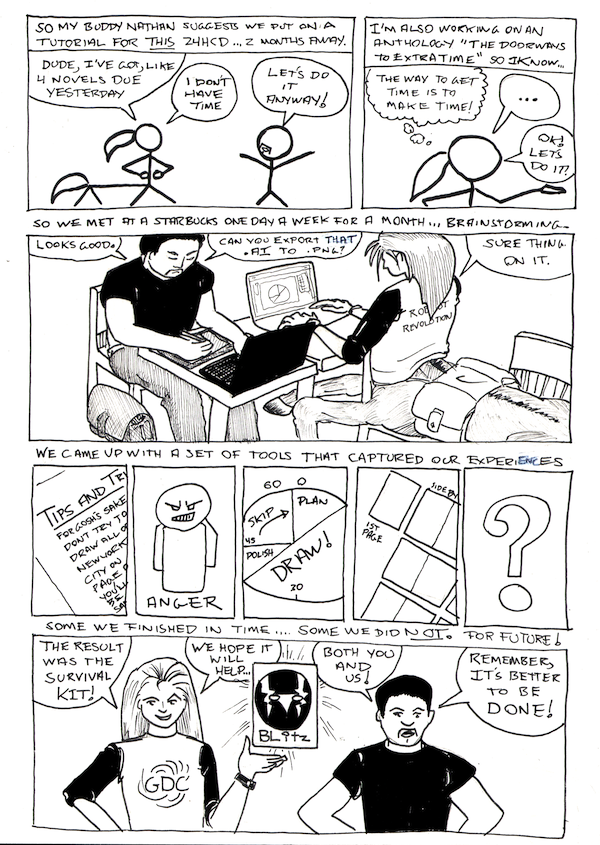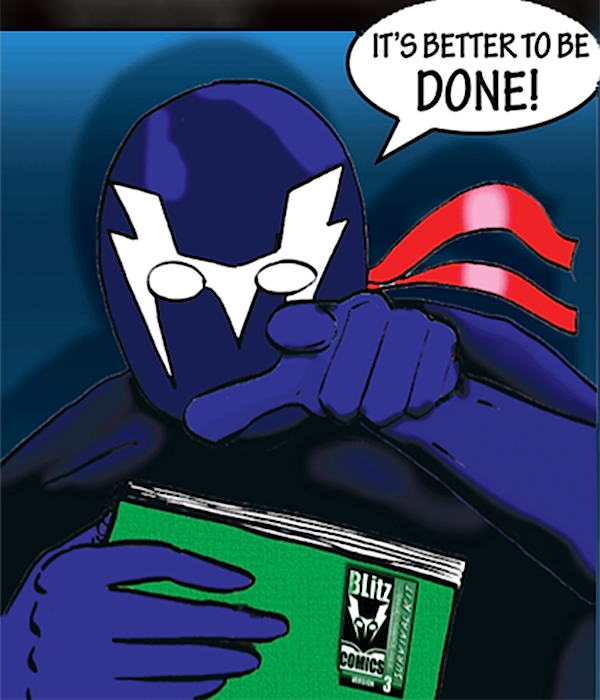
I am very interested in promoting creation. I think the world would be a better place if more people wrote, drew, painted, sculpted, danced, programmed, philosophized, or just came up with ideas. Not all ideas are great, and it's important to throw away the bad and keep the good - but the more ideas we can generate, the more we can test.
One of the biggest problems I see in unprofessional, unpublished or just unhappy creators is not finishing. It's very easy to start work on an idea - a painting, a novel, a sculpture, a program, a philosophy of life. But no matter how much you love what you do, there's always a point in creating a work where the act of creating transforms from play to work.
Whether you stall out because the work gets hard or because you get distracted by a new idea, it's important to realize the value of finishing. An unfinished idea can be scooped, or become stale, or disconnected from your inspiration. If you don't finish something, the work you did on it is wasted. More half finished ideas pile up. Your studio or notebook becomes a mess.
If you don't finish, you never learn to finish. You're learning to fail repeatedly. The act of finishing teaches you how to finish. You learn valuable skills you can apply to new works - or even to a new drafts. I know an author who was perpetually stalled out on a problematic story - until one day she made herself hit the end. Now it's on it's fourth draft and is really becoming something.
The tricky thing is you have got to put the cart before the horse: you've got to finish before you know whether it was worth finishing. This does not apply to experienced authors in a given genre, but if you're new to a genre, you have to finish something before you worry about whether you can sell it or even if it is any good.
You don't need for something to be perfect to finish it. I know too many amateurs who don't want to put out the effort to finish things because they don't know whether they can sell it. No. You've got a hundred bad programs in you, a thousand bad paintings, a million bad words, before you get to the good stuff. Suck it up, finish it, and move on.
Procrastination is a danger. This is the point in the article that I got distracted and wrote a quick email to a few other creators about ideas this (unfinished) article had inspired. Then I got back to it. Then I got distracted again doing the bullet list below and went back and injected this paragraph. The point is, it's OK to get distracted - just use that time wisely, then get back to it.
Finally, sometimes you just need help to finish the first time. The biggest thing is to find a tool which can help you over that hump when it stops being fun and starts being work - some challenge or group or idea that helps you get that much closer to done. To help people finish, I'm involved with or follow a variety of challenges and resources to help people finish:
- Write to the End: It's not a critique group; it's a writing group. We meet almost every Tuesday at a local coffee house and write for 20 minutes, read what we wrote, and repeat until they kick us out. We normally hit three sessions, so I usually get an hour of writing in every night - and hear a half dozen to a dozen other writers. Inspirational. Our web site contains articles on writing, including my new column The Centaur's Pen.
- National Novel Writing Month: A challenge to write 50,000 words of a new novel in the month of November. This seems daunting, but Nanowrimo has a truly spectacular support group and social system which really helps people succeed at the challenge. Even if you don't "win" the first time, keep at it, you will succeed eventually!
- Script Frenzy: Write 100 pages of a script (play, screenplay, or comic script) in the month of April - another event sponsored by the creators of Nanowrimo. This is an event I haven't yet tried, but am planning to tackle this year to get back into screenwriting (as part of my 20-year plan to get into directing movies).
- 24 Hour Comics Day: It's a challenge to produce a 24 page comic in 24 hours, usually held the first weekend of October. I've tried this 3 times and succeeded once. It's taught me immense amounts about comic structure and general story structure and even improved my prose writing.
- Blitz Comics: Because I failed at 24 Hour Comics Day, me and my buddy Nathan Vargas decided to "fake it until we make it" and to put on a boot camp about how to succeed at 24 Hour Comics Day. We produced a Boot Camp tutorial, a 24 Hour Comics Day Survival Kit - and along the way taught ourselves how to succeed at 24 Hour Comics Day.
- Other Challenges: There are a couple of events out there to create graphic novels in a month - NaGraNoWriMo and NaCoWriMo - though both of these are 2010 and I don't know if either one is live. (If they're not active, maybe I'll start one). There's also a 30 Character Challenge for graphic artists to create 30 new characters in a month.
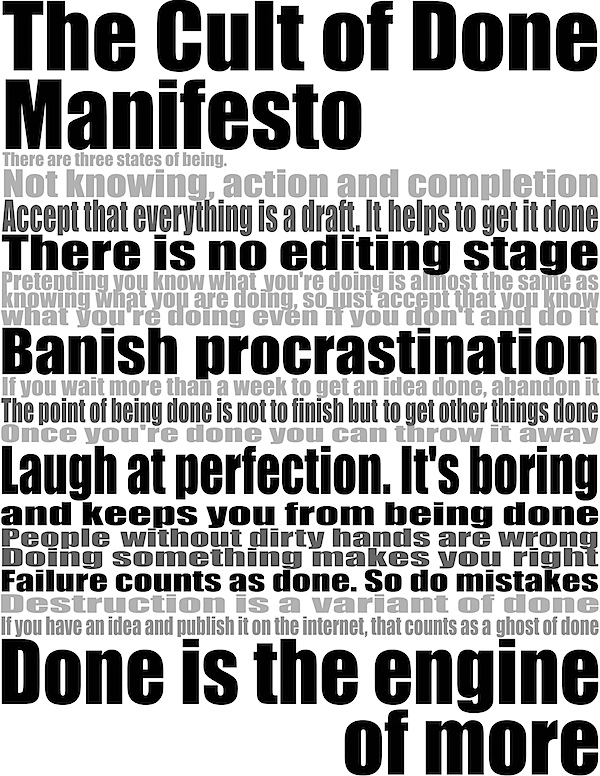
Finally, I want to finish with what inspired this post: the Cult of Done. I won't go too deeply into the Done Manifesto, but from my perspective it can be summed up in two ideas: posting an idea on the Internet counts as a ghost of done, and done is the engine of more. Get your stuff done, finish it, and if it's still half baked, post it to force yourself to move on to newer and better things.
The plane is landing. Time to get it done.
-the Centaur
Credits: The BlitzComics guy is penciled, inked and colored by me and post-processed by Nathan Vargas. Joshua Rothass did the Cult of Done poster and distributed it under a Creative Commons license. This blog post was uploaded by Ecto, which is doing well (other than an upload problem) and is probably going to get my money.
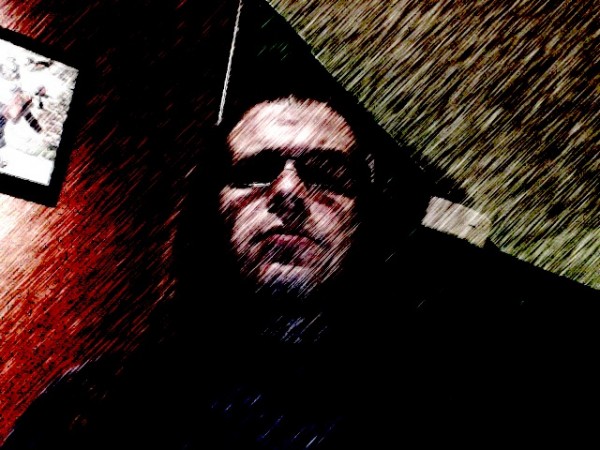 Finally finished my "From Nano to Novel" pep talk for the National Novel Writing Month site ... should be coming out later this month to the donors list. (What? You're not a Nanowrimo donor? You can fix that here: https://store.lettersandlight.org/donations).
But I've posted that to Facebook and to Google+. Posting it again here is, I think, a good idea to make sure people know what I'm up to, but in another way it's just procrastination ... I've got the gamma comments on "Stranded" to work on and this is not that.
Back to work!
-the Centaur
Finally finished my "From Nano to Novel" pep talk for the National Novel Writing Month site ... should be coming out later this month to the donors list. (What? You're not a Nanowrimo donor? You can fix that here: https://store.lettersandlight.org/donations).
But I've posted that to Facebook and to Google+. Posting it again here is, I think, a good idea to make sure people know what I'm up to, but in another way it's just procrastination ... I've got the gamma comments on "Stranded" to work on and this is not that.
Back to work!
-the Centaur  Finally finished my "From Nano to Novel" pep talk for the National Novel Writing Month site ... should be coming out later this month to the donors list. (What? You're not a Nanowrimo donor? You can fix that here: https://store.lettersandlight.org/donations).
But I've posted that to Facebook and to Google+. Posting it again here is, I think, a good idea to make sure people know what I'm up to, but in another way it's just procrastination ... I've got the gamma comments on "Stranded" to work on and this is not that.
Back to work!
-the Centaur
Finally finished my "From Nano to Novel" pep talk for the National Novel Writing Month site ... should be coming out later this month to the donors list. (What? You're not a Nanowrimo donor? You can fix that here: https://store.lettersandlight.org/donations).
But I've posted that to Facebook and to Google+. Posting it again here is, I think, a good idea to make sure people know what I'm up to, but in another way it's just procrastination ... I've got the gamma comments on "Stranded" to work on and this is not that.
Back to work!
-the Centaur 